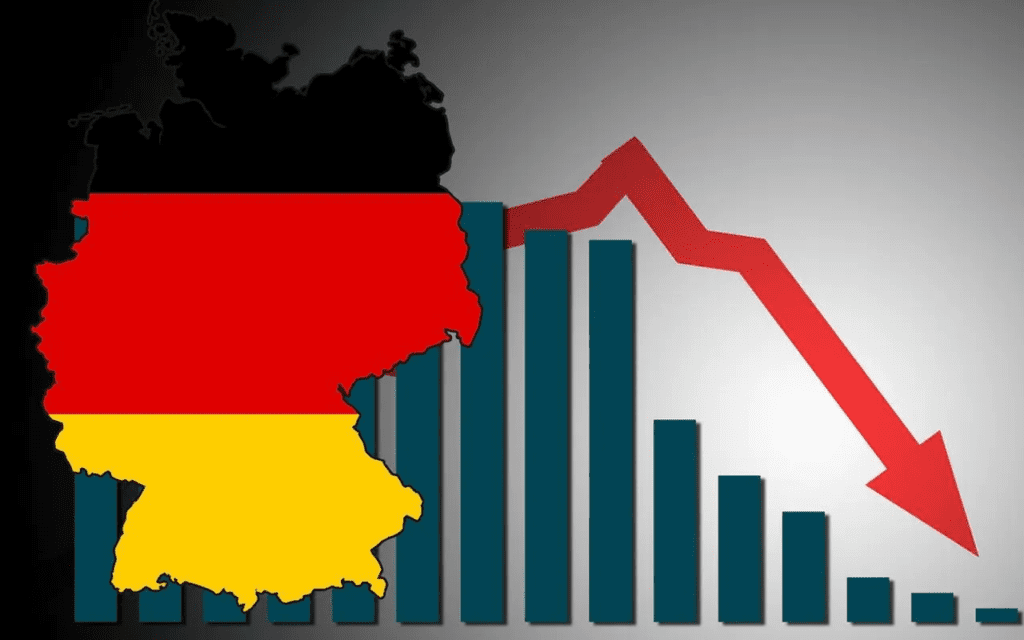Germany Recession 2023: Germany, the world’s fourth-largest economy, is currently grappling with a recession caused by a decline in the Euro and an unforeseen contraction in the economy during the first quarter of 2023. This decline, marking the second consecutive quarter of negative growth, meets the definition of a recession.
Germany Recession 2023:
Germany Recession 2023: News Explained simply

Germany, the fourth largest economy in the world, has slipped into a recession due to a decline in the Euro and an unexpected contraction in the economy during the first three months of 2023. The country’s gross domestic product (GDP) decreased by 0.3 percent between January and March, following a 0.5 percent decline in the previous quarter. This makes Germany the largest economy in Europe to experience a downturn. Despite an increase in employment and easing inflation, the prospect of higher interest rates continues to impact spending and investment. Economists, such as Franziska Palmas from Capital Economics, predict further weakness in the future. The German government’s decision to double the growth forecast for this year has been undermined by the latest figures, which may require downward revisions. Factors contributing to the recession include high inflation affecting consumer spending and minimal growth in the eurozone economy due to stagnant wages. Concerns about a potential recession have also arisen in the United States. However, the International Monetary Fund has revised its prediction for the United Kingdom, stating that it is expected to avoid a recession this year. These developments highlight the challenges Germany and other major economies face, and their implications for the global economic outlook.
Germany Recession 2023: Conclusion
Germany’s economy slipping into a recession has raised concerns about the overall global economic outlook. The decline in consumer spending, high inflation, and the impact of higher interest rates on investment and spending have contributed to this downturn. While Germany grapples with the challenges of recession, other major economies are closely monitoring their own growth prospects. It remains to be seen how these economic fluctuations will unfold in the coming months and their impact on the global economy.
What caused Germany’s recession?
Germany’s recession was triggered by a decline in the Euro and an unexpected contraction in the economy, influenced by factors such as high inflation and the impact of higher interest rates on spending and investment.
How does Germany’s recession affect employment?
Despite an increase in employment during the first quarter, the recession and economic challenges may have implications for job growth and stability in the country.
Are there concerns about a global recession?
The disappointing growth estimates in Germany and the United States have raised concerns about a potential global recession. However, the International Monetary Fund predicts that the United Kingdom will avoid a recession this year.
- Sonu Bidde Of TMKOC Nidhi Bhanushali will make a comeback after 5 years of escape from entertainment in Sisterhood
- Actor Ritesh Deshmukh starrer Pill Trailer out: He Vs Plague
- Kangana Ranaut’s Directorial Historical on India’s first woman Prime Minister, Indira Gandhi To Be Released on 6 September 2024
- Warner Bros Animation Released the Trailer Of Batman: Caped Crusader
- Funny and Insightful Couple Romantic video







Add comment